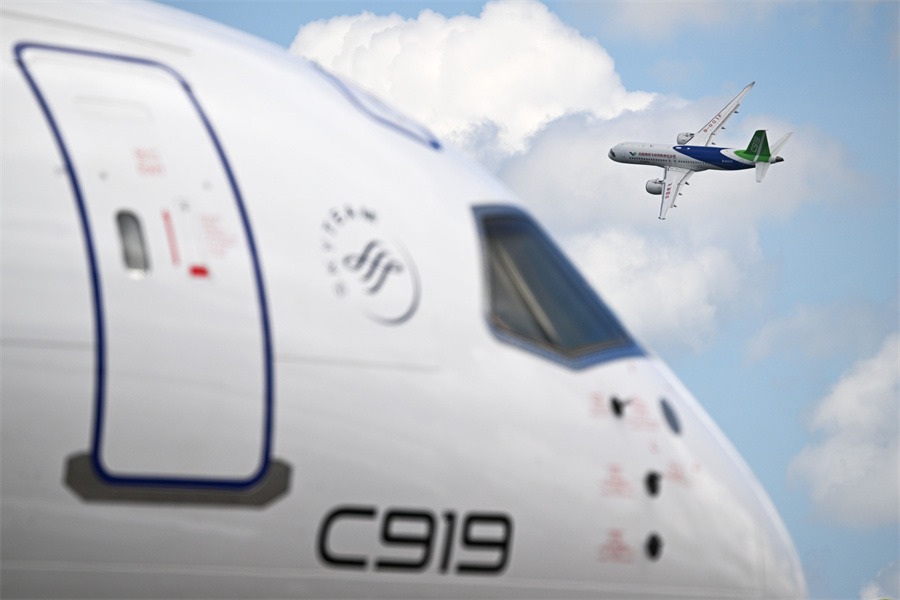For China and EU, way to common prosperity could be through food


Big plate chicken-big chunks of chicken and potatoes cooked in a beer-based sauce and garnished with bell peppers-is a famous dish in the Xinjiang Uygur autonomous region. But in a small restaurant in Namur, Belgium, which serves this dish, diners often have to order in advance, or wait in a long line to get a table.
Near Vrije University Brussels, a Chinese graduate has opened a restaurant selling grilled fish. The eatery is always crowded. Such cases are no longer exceptions. In many European cities, Chinese youths have opened restaurants. Some of these restaurateurs are still studying in a college to earn a degree.
With growing numbers of Chinese students, businesspersons and tourists flocking to Europe, many new restaurants have been set up to meet the rising demand of different palates. In addition, many Europeans, especially those who have had the experience of visiting China, love a myriad of Chinese cuisines.
In London, Paris, Amsterdam and Berlin, such businesses have become competitive, providing diners with different options for relatively authentic Chinese dishes.
In many European cities, it is still difficult to get high-quality Chinese food, though. Perhaps the main reason for that is the dearth of chefs who specialize in Chinese dishes. A few countries, such as Germany, have signed agreements with China for the exchange of cooks. But many countries don't issue visas to Chinese chefs.
Many people who cook Chinese dishes in Europe are not professionals. For the old generations, they chose to cook for survival. Many are not even trained and don't like the profession. And even those newly opened restaurants across Europe don't have enough professional chefs who can cook Chinese dishes.
This is an issue that deserves attention and investment, especially because of the rising demands and business opportunities. Given that this year marks the fifth anniversary of the China-proposed Belt and Road Initiative, China should consider taking measures to promote Chinese cuisines overseas. And in return, it should welcome the foods and chefs from other countries.
The Belt and Road Initiative encompasses the concepts of health, environmentally friendliness, low-carbon economy and digitization. It should now include cuisine exchange. The business of food holds huge potential. It's like music. No language is required to enjoy and appreciate it.
The shortage of chefs in Europe specializing in Chinese dishes can be solved in two ways.
First, China could negotiate with the European Union member states, or the EU as a whole, to start a chef-to-chef exchange program. China and Germany have been doing this for years and their experiences can be used to make the exchange program not only workable but also flourishing.
Equally importantly, China could allow EU member states to send European chefs to China to meet the rising demand for authentic European dishes in the country.
If it is difficult to reach a consensus on the issue, China could arrange for the amateur chefs working in restaurants in Europe to receive proper training. The issue deserves attention, because it would not require huge investments. After all, Chinese chefs working overseas are ambassadors of Chinese culture. And of course, businesspeople are welcome to take up this responsibility.
Not many European cities have Chinese restaurant chains. For investors, this means opportunities, which they can capitalize on to expand their wealth. Hopefully, by 2023, when the Belt and Road Initiative would mark its 10th anniversary, Europe would have more chain restaurants serving Chinese cuisines and Chinese cities would play host to umpteen European restaurants.
The author is deputy chief of China Daily European Bureau.


































